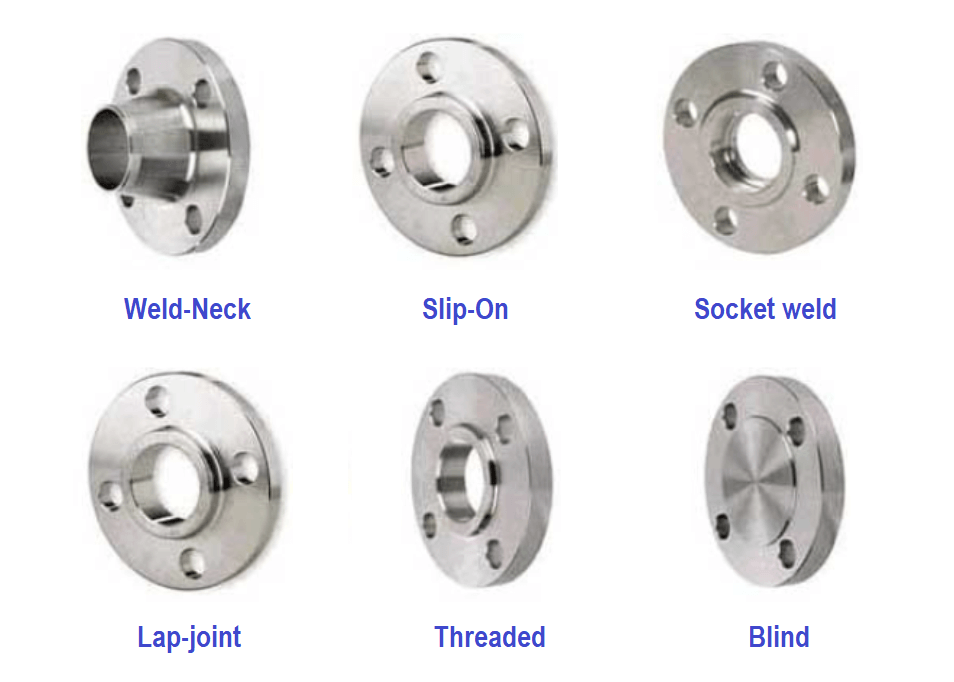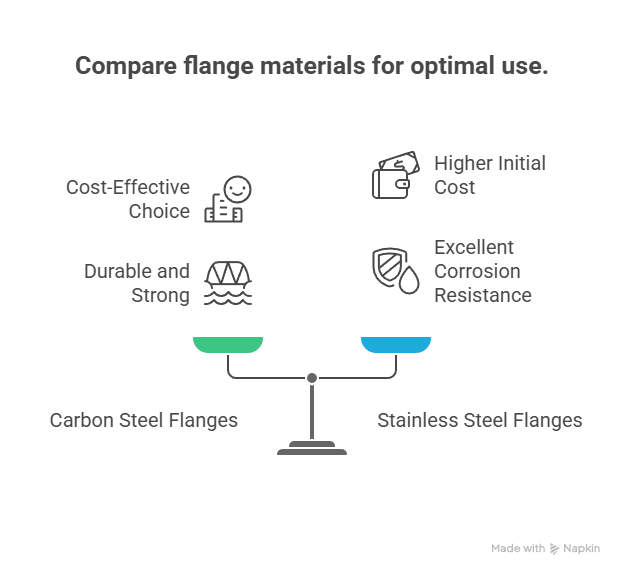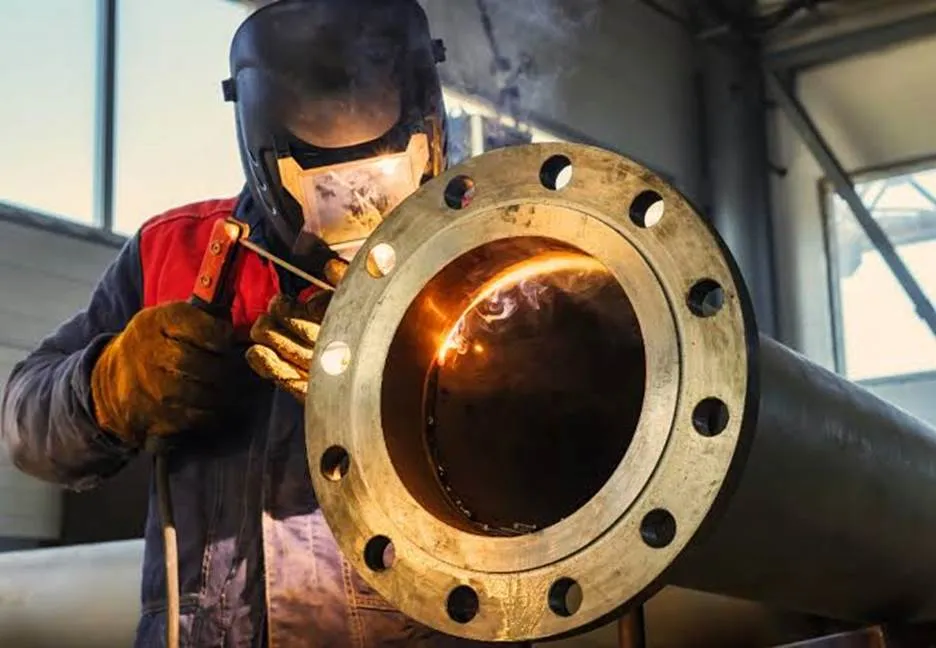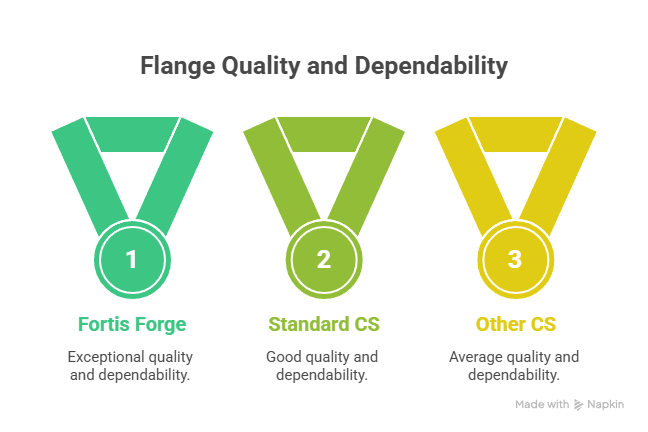Introduction
Piping systems are the backbone of industries worldwide. Strong and durable joints are necessary to maintain efficiency and safety. One of the most essential components used in piping systems is the CS Flange.
A CS Flange connects pipes, pumps, and valves in industrial systems. At Fortis Forge, we manufacture CS flanges that guarantee durability, strength, and international standard compliance. This blog explains CS flanges in detail, their types, uses, benefits, and technical features.
What is a CS Flange?
A CS Flange is a mechanical component made of carbon steel (CS). It connects pipes, pumps, valves, or other piping parts. Unlike welding, flanges allow easy disassembly for maintenance or replacement.
They are usually bolted with gaskets between the flanges to prevent leakage. This makes them reliable for high-pressure and high-temperature applications.
Importance of CS Flanges
CS Flanges play a critical role in industries. They make connections secure, strong, and leak-proof.
Key roles include:
Joining pipe sections
Connecting pumps and valves
Allowing pipeline maintenance
Withstanding high pressure and temperature
Preventing leaks with gaskets
Types of CS Flanges
CS Flanges are available in multiple types, each designed for specific use cases.
1. Weld Neck Flange
Strong and durable
Suitable for high-pressure pipelines
2. Slip-On Flange
Easy to install and cost-effective
Used in low-pressure applications
3. Blind Flange
Solid plate without bore
Used to close pipe ends
4. Socket Weld Flange
Provides smooth bore connection
Suitable for small pipe diameters
5. Threaded Flange
Does not require welding
Common in small-diameter, low-pressure systems
6. Lap Joint Flange
Used with stub ends
Allows quick alignment during installation

Why Choose Carbon Steel for Flanges?
Carbon steel is widely used due to its strength, cost-effectiveness, and adaptability.
Advantages include:
High strength-to-weight ratio
Excellent durability
Cost-effective compared to stainless steel
Works well in high-pressure systems
Easily available in multiple grades
Fortis Forge CS Flange Features
At Fortis Forge, we focus on manufacturing flanges that meet strict quality standards.
Key features include:
Precision-engineered design
Rust-proof coatings
High resistance to pressure and temperature
Long service life
Compliance with international standards (ASME, ANSI, DIN, BS, EN)

Applications of CS Flanges
CS Flanges are used in multiple industries worldwide.
Oil and Gas – Pipelines, refineries
Chemical Plants – Corrosive fluid handling
Power Plants – High-pressure boilers and systems
Shipbuilding – Marine piping systems
Water Supply – Distribution and pumping systems
Installation Process
Proper installation ensures maximum performance.
Steps include:
Align pipes and flanges correctly
Insert gasket between flanges
Bolt the flanges securely
Tighten bolts evenly in sequence
Inspect for leakage under test pressure
Maintenance Guidelines
Regular maintenance extends the lifespan of CS flanges.
Inspect bolts and gaskets regularly
Replace damaged flanges immediately
Apply protective coatings for corrosion prevention
Test pressure after maintenance


Technical Specifications of Fortis Forge CS Flanges
Material: Carbon Steel (CS)
Size Range: ½” to 60”
Pressure Rating: Class 150 to Class 2500
Standards: ASME, ANSI, DIN, BS, EN
Surface Finish: Rust-proof epoxy or galvanized coating
Conclusion
A CS Flange is a vital component in every piping system. It provides strength, leak-proof connections, and easy maintenance.
At Fortis Forge, we design and manufacture high-quality CS Flanges. Our products are tested under strict standards, ensuring safety and durability in industrial applications.
When reliability matters, Fortis Forge is your trusted partner.
